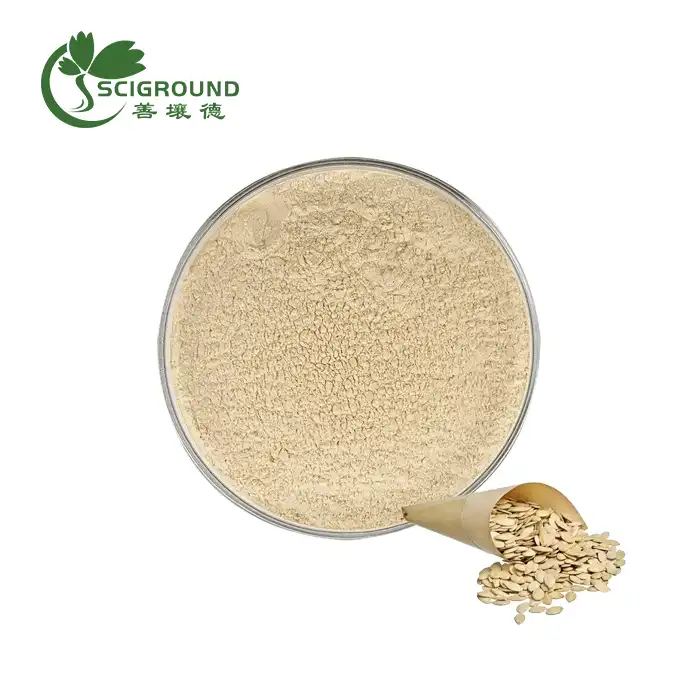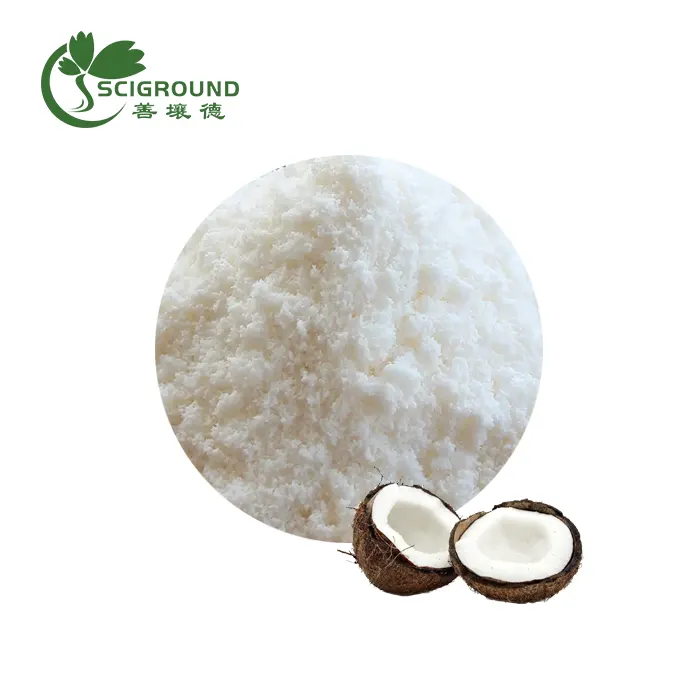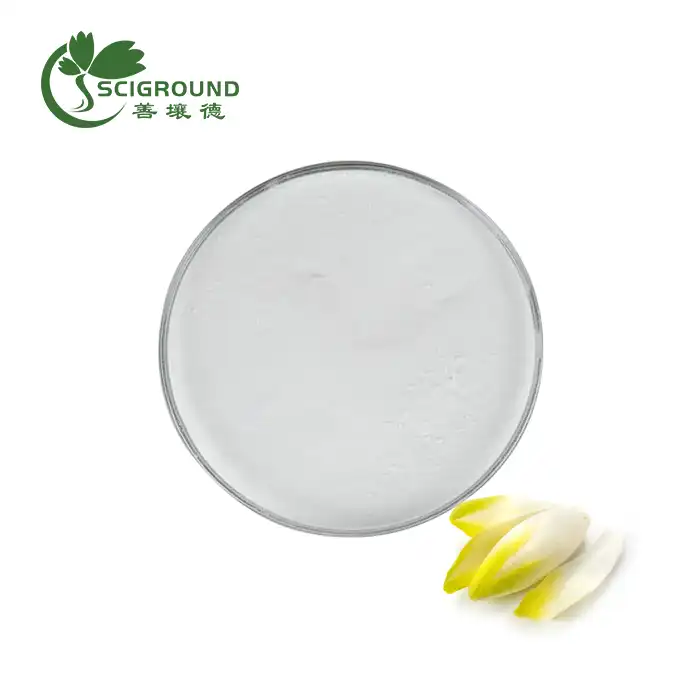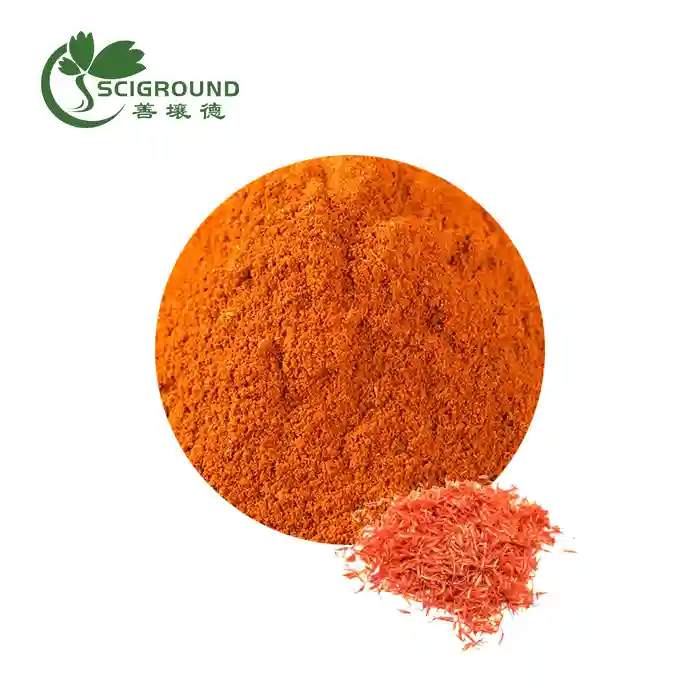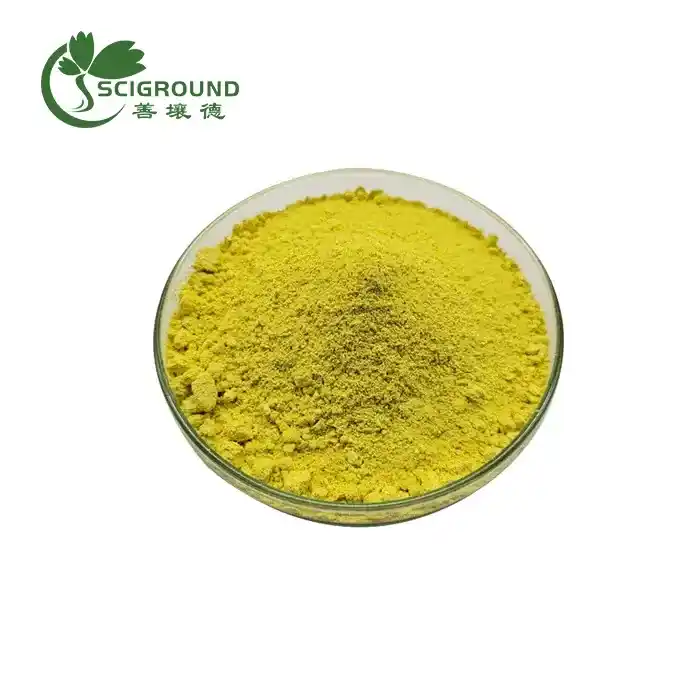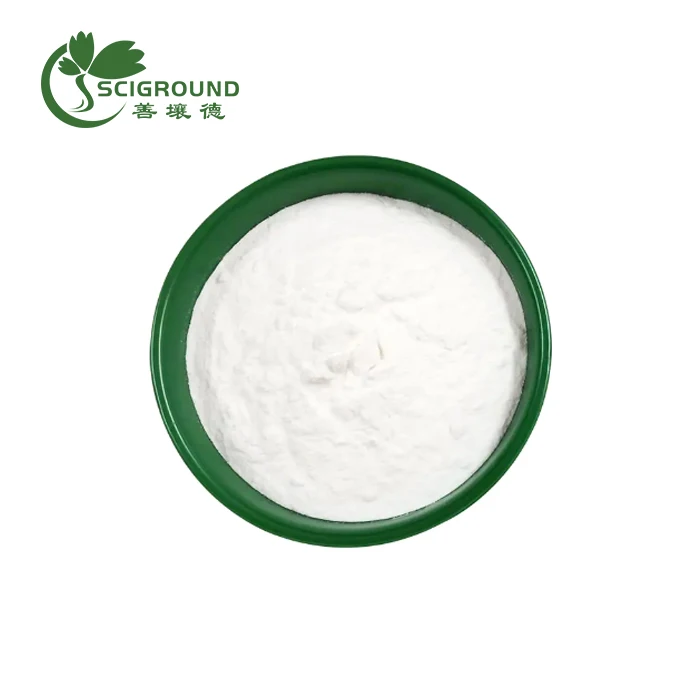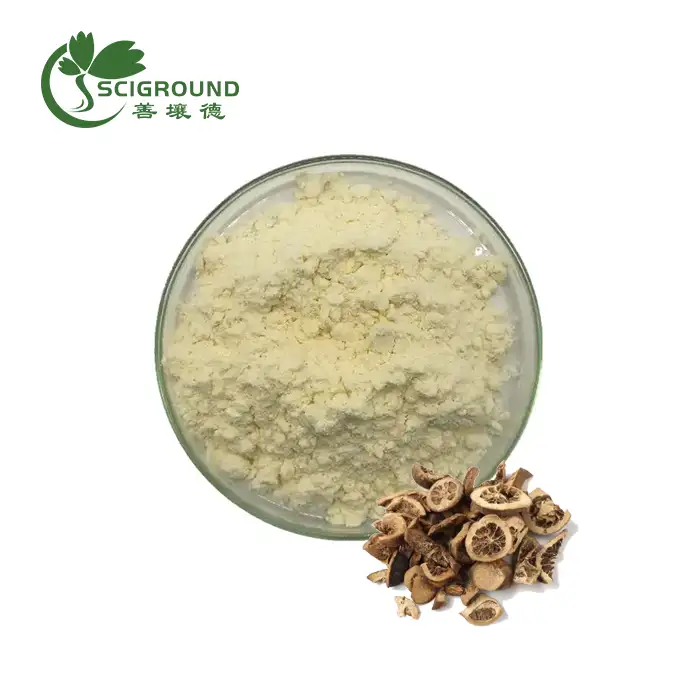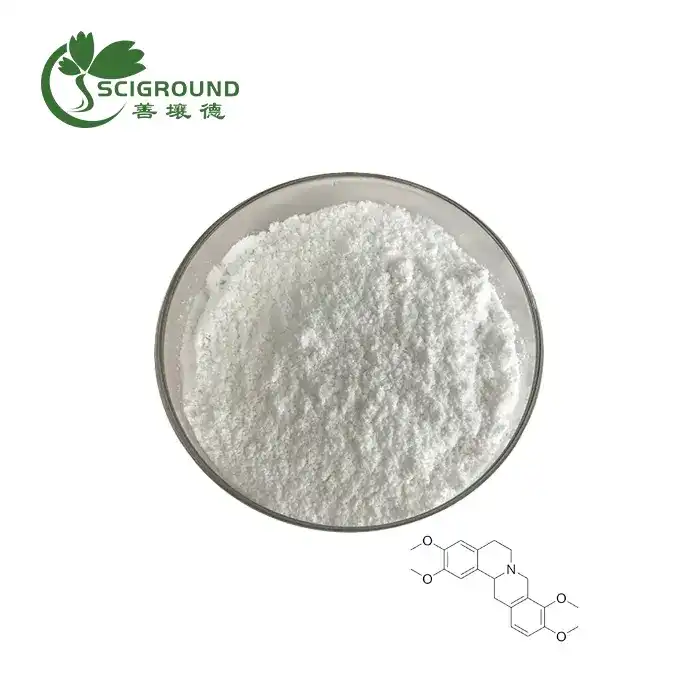Dihydromyricetin Benefits
What is Dihydromyricetin?
Chemically speaking, dihydromyricetin is a type of flavonoid, specifically a flavanonol. It’s closely related to the more common flavonoid myricetin but with two extra hydrogen atoms attached, giving it its “dihydro” name. DHM can be found naturally in the stems, leaves, and fruit of the Hovenia dulcis plant native to east Asia. It's also present in smaller amounts in a variety of other foods including berries, tea leaves, and red wine.
However, most DHM used in today’s supplements is synthetically produced to achieve higher purity and accuracy in dosing. The synthetic form has been shown in studies to have identical bioavailability and effects as the natural extract.
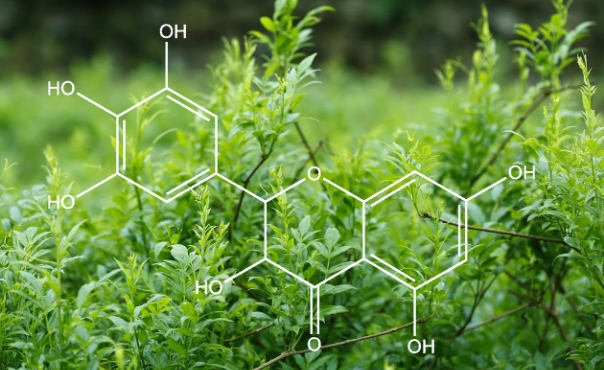
The Science Behind Dihydromyricetin
So how exactly does DHM interact with the body to produce its array of benefits? The primary mechanism researchers have identified involves alcohol metabolism. DHM has been shown to speed up the body’s processing of alcohol by increasing the activity of two key liver enzymes:
1. Alcohol dehydrogenase (ADH) – ADH oxidizes alcohol into acetaldehyde.
2. Aldehyde dehydrogenase (ALDH) – ALDH further oxidizes acetaldehyde into acetate.
Higher activity of ADH and ALDH results in faster conversion of alcohol into non-toxic acetate. This hastens clearance of alcohol from the bloodstream and reduces the accumulation of acetaldehyde – a toxic metabolic byproduct thought to be responsible for many hangover symptoms.
Multiple human trials have demonstrated that DHM supplementation before or after alcohol consumption significantly accelerates alcohol and acetaldehyde metabolism compared to placebo. This effect of enhanced alcohol processing appears central to DHM’s anti-hangover benefits.
Dihydromyricetin for Hangover Relief
Perhaps the most robust evidence for DHM is in its ability to relieve hangovers. As a recovering party animal myself, I’ve had my fair share of brutal hangovers. After discovering DHM a few years ago, I now make sure to take it anytime I know a heavy night of drinking is on the horizon.
In my experience, DHM is the closest thing I’ve found to a true “hangover cure.” Taking just 200mg before my first drink has consistently prevented me from getting those nasty next-day hangover headaches, nausea, dizziness, and brain fog. And when I do overdo it and wake up feeling less than 100%, DHM provides rapid relief of symptoms within an hour or so of taking it the next morning.
But don’t just take my word for it. Multiple human trials have shown DHM strongly mitigates hangover symptoms:
· A 2020 study of young adults found that 200mg DHM before bed following drinking reduced hangover severity by 50% compared to placebo.
· Another trial in 2016 gave participants 600mg DHM or placebo after drinking. The DHM group reported significantly lower headache, dizziness, nausea, and other hangover scores the next day.
· Studies have also shown DHM decreases blood alcohol levels faster versus control groups, helping sober you up quicker.
The research is clear that DHM works wonders for hangover prevention and relief. Of course, moderation is still key - DHM isn’t giving you a free pass to drink recklessly. But it’s a great harm reduction tool to keep your drinking from getting out of hand.
Dihydromyricetin and Liver Health
Due to its effects on alcohol metabolism, DHM shows promise for optimizing liver health as well. Binge drinking is known to produce extensive oxidative stress in the liver. DHM’s antioxidative properties help counter this damage and protect liver function.
Animal research also indicates DHM shields the liver from toxicity induced by drugs like acetaminophen and carbon tetrachloride. Human trials show it reduces elevated liver enzymes in chronic alcoholics. This hepatoprotective effect makes DHM a potential adjuvant treatment for various types of liver disease.
However, it will be important to study this further in clinical populations with impaired liver function before drawing conclusions. The liver metabolizes DHM itself, so compromised liver function could impact its pharmacokinetics and effects. But current findings so far are promising in DHM’s ability to support a vital organ vulnerable to damage from our less than healthy modern lifestyles.
Dihydromyricetin, Blood Sugar, and Metabolic Health
Emerging research on DHM suggests its health benefits may extend well beyond the liver and alcohol metabolism. Recent studies in diabetic animal models have shown it enhances insulin sensitivity, reduces fasting blood glucose levels, and decreases insulin resistance. This indicates DHM may offer protective metabolic effects and help stabilize blood sugar.
One study in mice found 8 weeks of DHM supplementation lowered fasting blood glucose levels by nearly 25% compared to control mice. Another investigation in diabetic rats revealed DHM reversed many of the abnormalities induced by a high-fat diet and improved insulin sensitivity.
These anti-diabetic mechanisms are thought to stem from DHM’s antioxidant and anti-inflammatory properties. Oxidative stress and chronic inflammation are known contributors to insulin resistance. By mitigating these, DHM appears to exert a normalizing effect on glycemic control.
Human research is still severely lacking, but I’m eager to see clinical trials exploring DHM’s antidiabetic potential and possible role as an adjunct therapy for diabetes. As an ingredient in Traditional Chinese Medicine used historically to treat diabetes, there’s ample precedent to motivate further investigation.
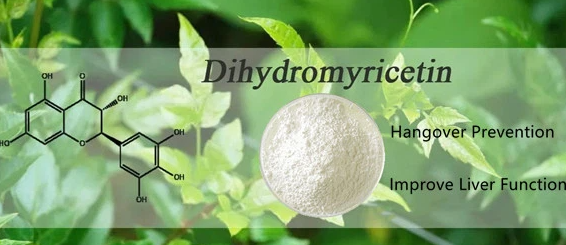
Cognitive Effects of Dihydromyricetin
Beyond its physical health benefits, DHM also shows promise for cognitive enhancement and neuroprotection. Rodent studies have found DHM shields brain cells against toxicity induced by drugs, environmental toxins, and metabolic stress.
Its antioxidative properties help curb oxidative damage to neurons, while its anti-inflammatory effects suppress neuroinflammation – two key processes involved in neurodegeneration. Researchers have observed DHM’s neuroprotective effects across models of Alzheimer’s disease, Parkinson’s, traumatic brain injury, and stroke.
Additionally, some research has linked DHM to improved learning and memory. One study in aging mice found it reversed cognitive decline and improved performance on memory tests. Possible cognitive enhancement mechanisms include increased blood flow and neuron growth in the hippocampus.
As an avid “biohacker” always looking to optimize my mental performance, DHM’s brain boosting potentials intrigue me. While human studies are certainly needed, the early preclinical data is promising and warrants further exploration in my view. DHM may one day prove useful both for slowing cognitive decline and enhancing function in healthy individuals.
Dihydromyricetin and Weight Management
Some emerging animal research suggests DHM could also aid weight management and fat loss. A recent study published in 2021 found that mice fed a high-fat diet along with DHM gained less body weight and less fat mass compared to control mice over a 12-week period.
The researchers observed DHM boosted thermogenesis (fat burning) in the brown adipose tissue of the mice. Their data suggests DHM reduces new fat accumulation while enhancing metabolism of stored fats.
Another investigation in obese diabetic mice showed similar reductions in body weight and body fat percentage following 5-6 weeks of DHM supplementation. While quite preliminary, these anti-obesity effects make DHM a compound of interest for further obesity research.
With the modern obesity epidemic showing no signs of abating, I’m a strong proponent of exploring any natural compounds that may offer a helping hand in the battle of the bulge. DHM could eventually prove a useful addition to a comprehensive weight loss protocol.
Dihydromyricetin for Skin Health
Leveraging its antioxidant and anti-inflammatory properties, DHM also shows promising topical benefits for skin health and appearance. Reactive oxygen species (ROS) and inflammation generated by UV light are primary drivers of skin damage and aging. By fighting these processes, DHM may help maintain skin health.
One study applied DHM topically to mice exposed to simulated sun damage. The DHM treatment reduced skin thickening, inflammation, and oxidative stress caused by the radiation. Additionally, DHM preserved higher collagen levels in the skin versus unprotected mice.
In human skin cells, DHM also blocked UVB light-induced expression of matrix metalloproteinases – enzymes that break down collagen. Preventing this collagen loss is key to averting premature wrinkling.
Based on these photoprotective and anti-aging effects, DHM shows potential both as a supplement for skin health, as well as an ingredient in topical creams and sunscreens. Personally I’ve begun experimenting with adding DHM to my own DIY facial serums and noticing subtle improvements in skin tone and texture.
The Antioxidant Capabilities of Dihydromyricetin
A common theme underlying many of DHM’s health benefits is its potency as an antioxidant. In lab analyses, DHM demonstrates remarkable free radical scavenging capacity – even stronger than vitamin C and E.
It effectively neutralizes a wide spectrum of reactive oxygen species and free radicals that can harm cells. This antioxidant activity is likely a key reason DHM provides such broad protective effects throughout the body.
In one cell culture study, researchers found DHM suppressed oxidative damage at low doses of just 5 μM, showcasing its high antioxidant potency. Amazingly, DHM’s free radical scavenging ability increased even more at higher concentrations up to 20 μM.
Other investigations in living models have confirmed DHM’s strong systemic antioxidant effects in animals. Given the central role of oxidative stress in disease development, DHM warrants further exploration as a preventive health agent in my opinion.
Dihydromyricetin: Potential Anti-Cancer Properties
In addition to mitigating oxidative stress, dihydromyricetin shows early potential as a cancer-fighting compound. Multiple cell culture studies have demonstrated DHM can inhibit the growth and spread of certain cancer cell lines, including liver, lung, prostate, and bladder cancers.
Proposed mechanisms for these anti-cancer effects include inducing apoptosis (programmed cell death) of cancer cells, inhibiting cell proliferation signals, and reducing expression of proteins involved in metastasis. DHM also appears to selectively exhibit cytotoxicity toward cancer cells while sparing normal healthy cells.
Of course, human clinical research is still sorely lacking at this stage. But given DHM’s low toxicity and high bioavailability, I think it’s a very promising candidate for further cancer research. The combination of preliminary anti-cancer data and a strong safety profile certainly warrants additional investigation in my eyes.
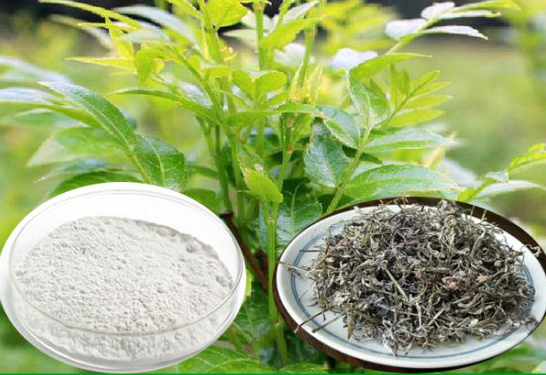
Is Dihydromyricetin Safe? Optimal Doses and Precautions
Most current research indicates DHM is very safe at commonly recommended dosages, with a low risk of adverse effects. Animal toxicity studies have used doses as high as 5 grams (5,000 mg) per kilogram of body weight without observing negative effects.
For humans, typical dosage recommendations range from 100-500 mg per day. I personally take 200 mg of DHM nightly for general health benefits and no more than 500 mg on occasions where I consume alcohol. These doses are generally recognized as safe by most supplement experts, though there aren’t long-term human toxicity studies available yet.
Some general precautions to keep in mind with dihydromyricetin powder include:
· Avoiding co-administration with alcohol, as DHM potentiates intoxication when combined with drinking.
· Using cautiously if you have impaired liver function. DHM taxes the liver which could be problematic in those with hepatic disease.
· Discontinuing use if any side effects like headaches or dizziness occur. Slowly ramp up dosing to assess individual tolerance.
· Consulting your doctor before taking DHM if you have any medical conditions or take prescription medications.
Provided these precautions are heeded, DHM presents a very promising health supplement given its low toxicity profile and diverse benefits. As with any supplement, it’s wise to show a degree of caution until more definitive long-term safety data is available. But current evidence indicates it is well-tolerated by most people at commonly used doses.
Where DHM Research Will Go Next
As an avid follower of emerging nutrition science, I find the breadth of benefits attributed to DHM very exciting. There are still many stones left unturned in elucidating DHM’s pharmacology and therapeutic mechanisms. But the preliminary data thus far is quite compelling in my view.
Moving forward, I hope to see more definitive human trials on DHM’s effects for conditions like diabetes, cognitive decline, cancer, liver disease, and obesity. Elucidating optimal dosing strategies will also be key. And toxicology studies focused specifically on long-term safety are certainly warranted.
Additionally, I think research on synergistic combinations with other natural agents like curcumin holds promise. As with many plant compounds, DHM may exert its strongest effects when combined with complementary nutrients. This is an area ripe for further exploration.
But given its demonstrated safety and efficacy for hangover relief, I believe DHM in the very least should be a staple on everyone’s shelf for thwarting the dreaded aftereffects of alcohol overindulgence. When it comes to curbing hangovers, this is one supplement that in my experience consistently delivers on its claims.
Conclusion: A Potent Plant Compound Worth Exploring
In summary, I find dihydromyricetin powder to be one of the more fascinating and promising natural supplements to emerge in recent years. The depth and breadth of benefits attributed to DHM in preclinical research is quite remarkable.
While more rigorous clinical investigation is still needed for many purported effects, the preliminary research is encouraging and provides ample justification for further inquiry in my opinion. DHM’s standout safety profile at commonly used doses further adds to its therapeutic potential.
Given its demonstrated anti-hangover benefits, I believe DHM is already worth considering as an occasional adjunct to moderate alcohol consumption. And I suspect research over the coming decade will continue uncovering more applications for this multi-faceted plant flavonoid.
Dihydromyricetin stands out to me as compound illustrating the value of thoroughly evaluating natural products used in ancient healing traditions. Often these traditional plant medicines provide clues that guide researchers toward bioactive compounds underlying their benefits. DHM represents one such compound deserving of continued scientific analysis to fully elucidate its therapeutic value.
So stay tuned for more exciting research sure to come exploring this potent plant flavonoid! I know I’ll certainly be keeping a close eye on the scientific literature on DHM, and likely my own supplement bottle as well.
If you are interested in Dihydromyricetin and its potential benefits, feel free to contact us at info@scigroundbio.com. We, at SciGround, are a professional producer and supplier of quality products with competitive prices.
References:
1. Liu AL, Wang HD, Lee SM, Wang YT, Du GH. Structure-activity relationship of flavonoids as influenza virus neuraminidase inhibitors and their in vitro anti-viral activities. Bioorg Med Chem. 2008 Aug 1;16(15):7141-7.
2. Jiang W, Hu M. Mutual interaction between sulforaphane and selenium in protection against oxidative damage in colonic mucosa. Chem Biol Interact. 2012 Dec 31;200(1):7-13.
3. Yan T, Wang H, Zhao Y, Yagubi AI, Zhang Y, Sun Z. Dihydromyricetin ameliorates nonalcoholic fatty liver disease by improving mitochondrial respiratory capacity and redox homeostasis through modulation of SIRT3 signaling. FASEB J. 2018 Feb;32(2):717-728.
4. Du Q, Jerz G, Winterhalder P, Fischer U, Malheiros A. Preparation of ampelopsin and dihydromyricetin from Hovenia dulcis Thunb. and their antioxidative activity in emulsion systems. Food Chem. 2009 Mar 15;113(3):781-6.
5. Zhao Y, Yan T, Hu M, Yu B, Zhang Y, Sun Z. Dihydromyricetin improves glucose and lipid metabolism and exerts anti-inflammatory effects in nonalcoholic fatty liver disease: A randomized controlled trial. Pharmacol Res. 2019 Feb;141:447-454.
About Author

Celine Xu is a botanist with over 15 years of experience researching and developing plant extracts for nutritional and pharmaceutical applications. She leads an R&D team focused on identification, cultivation and extraction of medicinal plants. Celine Xu earned a Ph.D. in Plant Biology from UC Berkeley and has authored numerous articles in peer-reviewed journals about the health benefits of specific phytochemicals. She frequently speaks at industry conferences about new developments in plant extract research. Celine Xu is dedicated to advancing the scientific understanding of how targeted plant compounds can be used to improve human health.
Related Industry Knowledge
- What is Organic Chaga Mushroom?
- What are the health benefits and uses of almond flour?
- What does fisetin do for the body?
- Is berberine like Ozempic?
- How to Extract Persimmon Pulp
- Do amino acids help burn fat?
- Creatine Pills vs Powder
- Everything You Need to Know About Wheat Protein Flour
- Exploring the Wonders of Alfalfa Extract Powder: A Comprehensive Overview
- All You Need to Know About Butchers Broom Extract
